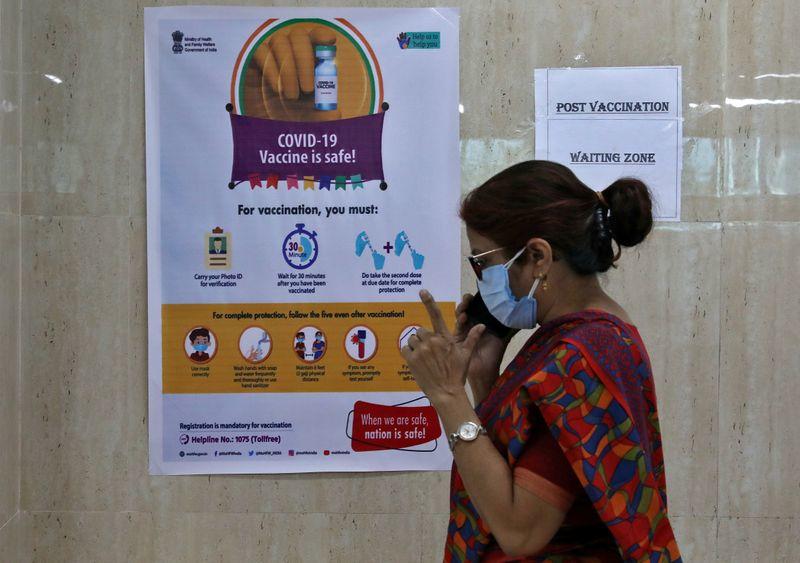By Neha Arora and Krishna N. Das
NEW DELHI (Reuters) – India has received applause for gifting and selling COVID-19 vaccines worldwide, but will have to accelerate the pace of immunizations at home to meet its goals.
Having reported the second highest number of COVID-19 cases in the world, after the United States, India wants to inoculate 300 million people – a fifth of its population – against the virus by August.
However, in four weeks, health workers vaccinated only 7.5 million frontline workers as a priority, a rate at which India would take several years to reach its goal.
“Vaccination programs generally start slowly and then increase as logistical and operational issues are resolved,” said Gagandeep Kang, professor of microbiology at Christian Medical College in Vellore.
“In India, we are fortunate that the supply of vaccines is not a rate-limiting step, but to meet the deadlines set by the government, we will have to immunize between 4 and 5 times more people per day than we are doing today. “
The government says it is ready to step up vaccination starting next month, including tying up more private hospitals, once identified groups of the general public get the vaccines. An online government vaccine platform told Reuters it could handle 10 million vaccines a day.
The health ministry also says India is the fastest-reaching 7 million mark, although immunization in relation to the population has been much higher in many other countries.
Several large Indian states, such as Tamil Nadu and Punjab, have covered less than 40% of their high-risk population, such as nurses, doctors and hospital cleaning staff, worrying the federal government.
New Delhi called on states to speed up vaccinations after a review found “substantial” room for improvement, although the government thinks that involving many private participants in the campaign can be tricky.
“Vaccine administration needs a system because of the nature of the disease,” said a senior government official involved in the process, who declined to be named, citing the service’s rules.
“They have to get details of the person who is taking, recording and monitoring.”
‘HOLE INHIBITIONS’
India, which produces 60% of all vaccines in the world, has donated or sold injections of COVID-19 to 17 countries and has orders for five more. The government, however, told the http://164.100.24.220/loksabhaquestions/annex/175/AU1411.pdf parliament this week that it was coordinating with manufacturers to ensure adequate supplies for its own campaign.
He also says that http://164.100.24.220/loksabhaquestions/annex/175/AU917.pdf infrastructure such as refrigerated storage and special vehicles is not a problem, although he acknowledges vaccine hesitation among some beneficiaries.
India implemented the COVAXIN vaccine developed by Bharat Biotech in partnership with the Indian Medical Research Council, administered by the state, as well as a vaccine licensed by AstraZeneca and the University of Oxford.
Some doctors and the opposition-ruled Chhattisgarh state, however, are concerned about COVAXIN, which was approved last month for emergency use without any data on the effectiveness of a final stage test.
The health ministry criticized Chhattisgarh for “feeding inhibitions” on vaccines during a pandemic. India registered 9,309 new daily cases of COVID-19 on Friday, increasing the total number to 10.88 million cases since the pandemic began. Deaths increased by 87 to a total of 155,447.
“In unprecedented times, you must help resolve any hesitation about the vaccine and do what is in people’s best interests, not vested interests!” Health Minister Harsh Vardhan said on Twitter in response to a letter from his counterpart in Chhattisgarh.
Bharat Biotech said data on the efficacy of the final-stage clinical trial will be released next month. The government considered the shooting safe and effective.
India is also expected to approve other injections in the coming months, including Russia’s Sputnik V and products from Cadila Healthcare, Novavax and Johnson & Johnson.
(Reporting by Neha Arora and Krishna N. Das; Editing by Raissa Kasolowsky)
